Travel
The Business Travel Boom of 2024: What You Need to Know – Business Traveler USA
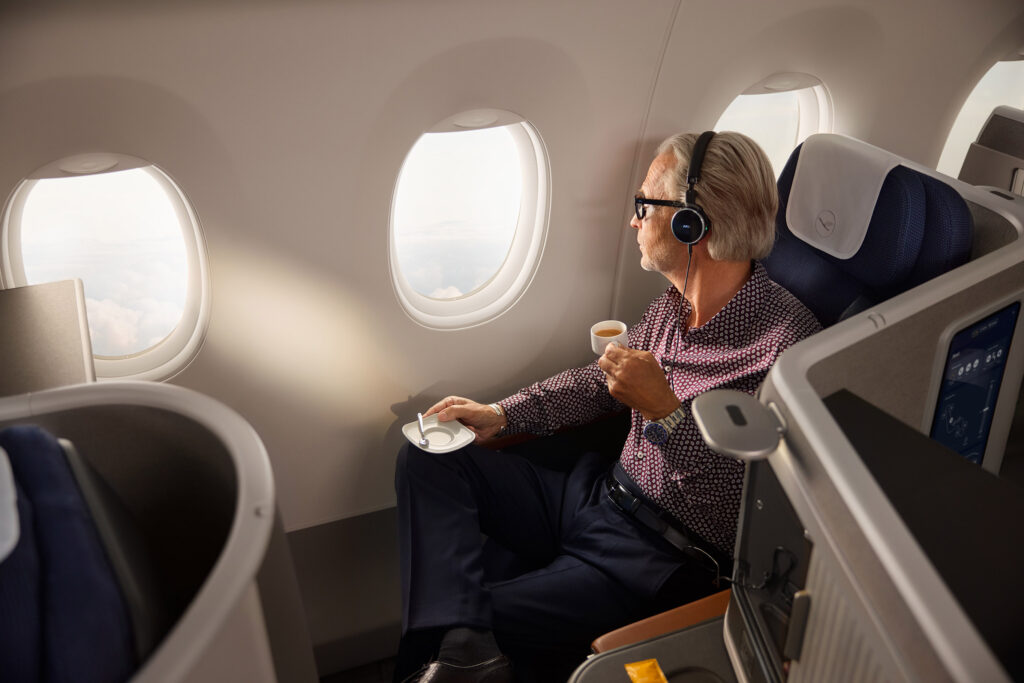
Business travel in 2024 has experienced a remarkable resurgence, surpassing pre-pandemic levels and transforming the way companies and employees perceive corporate travel. The revival is being driven by hybrid work models and the return of in-person meetings, leading to an evolution of the industry rather than just a recovery. Companies are reevaluating their approach to travel, while employees are finding new ways to balance work and leisure.
Business Travel Resurgence
As companies strive to foster relationships, close deals, and attend conferences, business travel bookings have skyrocketed. According to a Modern Business Travel Benchmarks report by Navan, an online travel management corporate card and expense management company, booking volumes through August 2024 averaged 118 percent compared to 2019 levels.
While Zoom calls have become a part of daily life, the value of face-to-face meetings has proven indispensable for business growth.
Alongside this resurgence, there has been a notable shift in the reasons for travel. Office visits, conferences, and customer visits have all increased in frequency since 2019.
According to the report, office visits now account for 33 percent of business trips, up from 28 percent, while conference travel has risen to 15 percent, compared to 12 percent in 2019.
This uptick indicates the importance of in-person interactions, whether to foster internal team collaboration or build relationships at industry events.
Flight and Hotel Prices on the Rise
With the return of travel comes a rise in costs. Base flight prices are up 18 percent since 2019, and taxes and fees have increased by 25 percent.
The report notes domestic flights have seen a base rate increase of 11 percent, while international flight prices have risen by 33 percent, largely due to fuel surcharges.
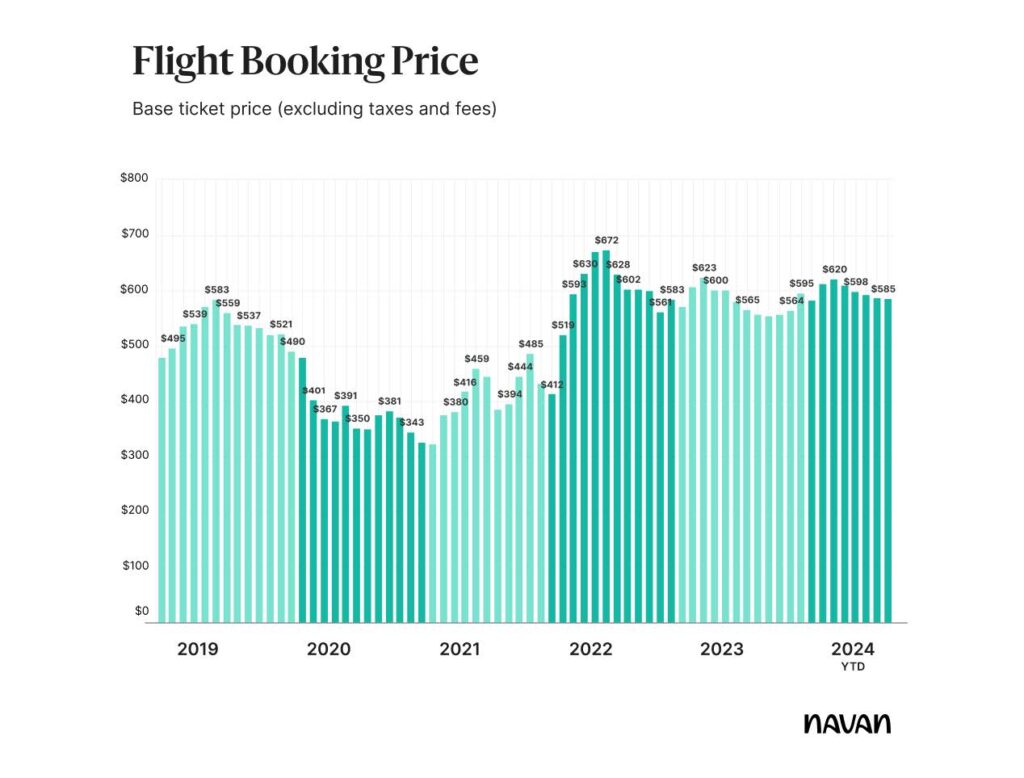
Similarly, accommodation costs have climbed by 14 percent, with the average nightly hotel price rising to $209, compared to $195 in 2019.
However, businesses are finding ways to offset these expenses. One notable trend is the increase in booking lead times, with companies planning trips further in advance to reduce costs.
In 2024, enterprise companies booked flights on average 6.2 days earlier than in previous years, reflecting a strategic shift toward cost-saving measures.
The Bleisure Boom
A significant trend shaping the modern business travel landscape is the rise of “bleisure” travel—the blending of business trips with personal time.
In its report, Navan’s “Extend Your Stay” feature has made it easier for employees to add leisure days to business trips, and this trend shows no sign of slowing down. In fact, bleisure bookings are up an astounding 275 percent year-over-year, as employees increasingly take advantage of work trips to explore new destinations.
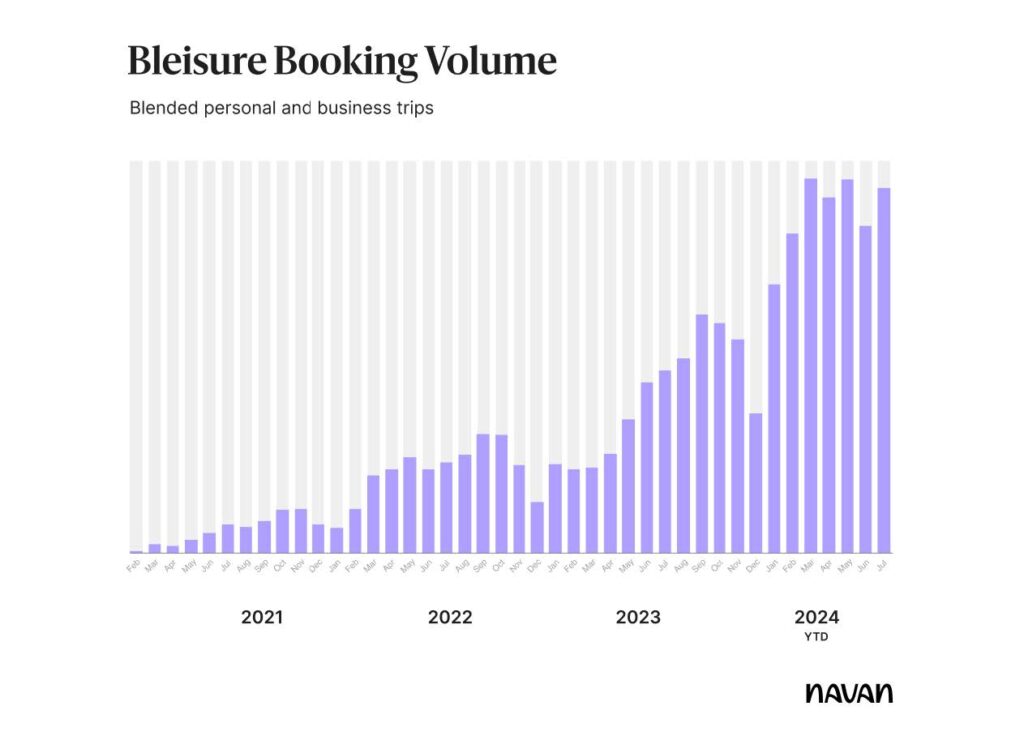
As prices drop during the fall shoulder season and the conference calendar heats up, more employees are combining work and leisure.
From September to mid-November, bleisure travel accounts for a significant share of annual bookings, with many employees extending business trips by an average of two days to enjoy their surroundings.
Sales Teams Lead the Charge
In the report, Navan also finds that sales teams continue to dominate business travel, though their share has declined slightly since 2019.
Currently, sales teams make up around 43-44 percent of travelers, down from 51 percent pre-pandemic, reflecting a broader diversification of travel needs across other departments.
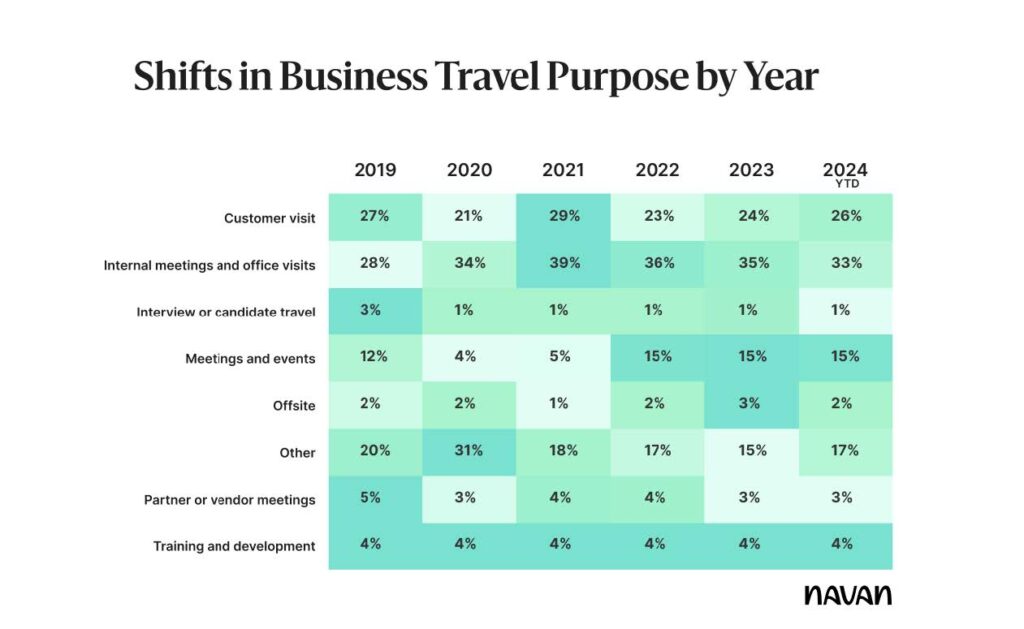
Engineering and operations teams now account for 12 percent of travel bookings, while marketing, finance, and HR departments have also seen a rise in travel.
Sales teams, in particular, have adopted a new travel rhythm, with spring and early summer emerging as the prime seasons for closing deals and meeting clients.
International Travel and the Rise of Rail
Another notable shift in business travel is the growing preference for international trips over domestic ones. International bookings have increased by nine percentage points since 2019, while domestic travel has seen a corresponding decline.
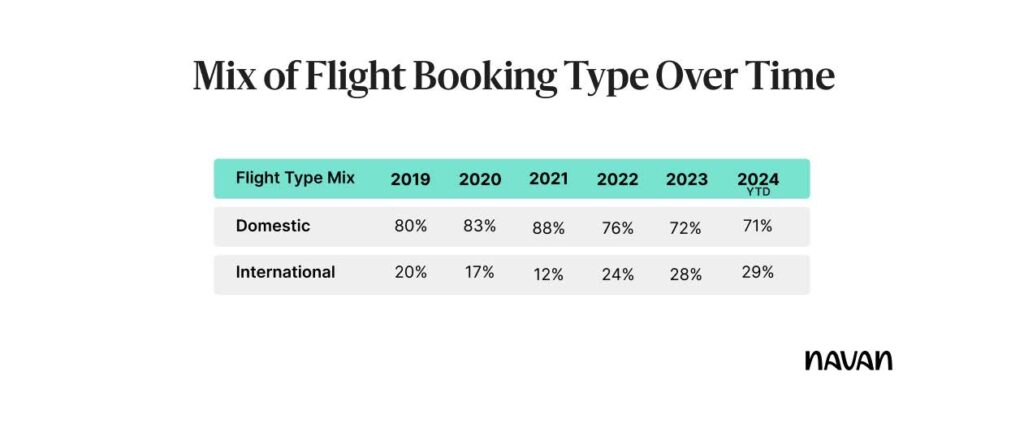
This trend highlights the global nature of modern business, with more companies seeking international opportunities and partnerships.
In Europe, for instance, the rise of rail travel is also gaining momentum, particularly in light of new environmental regulations. Countries like France have implemented rules that favor rail travel over air travel on shorter routes, leading to a 6 percent increase in rail bookings since 2019.
What’s Ahead?
Looking forward, business travel is expected to continue growing, driven by the need for face-to-face interactions and the increasing popularity of flexible work arrangements.
Companies are finding ways to maximize the benefits of corporate travel while managing costs and improving employee satisfaction. The ability to blend work and leisure, along with the convenience of advanced booking technologies, is changing how both employees and employers approach business trips.
Modern business travel is shaping a new era of corporate mobility, with companies embracing the opportunities to combine work and personal time, providing travelers with the chance to make the most of their trips.










